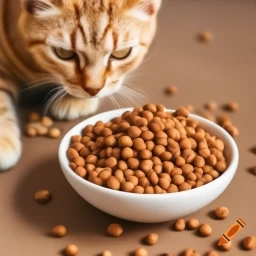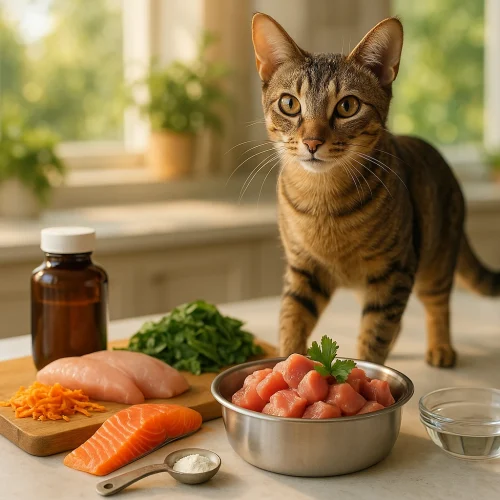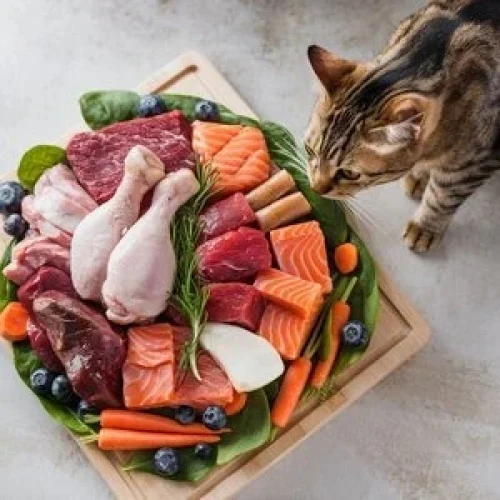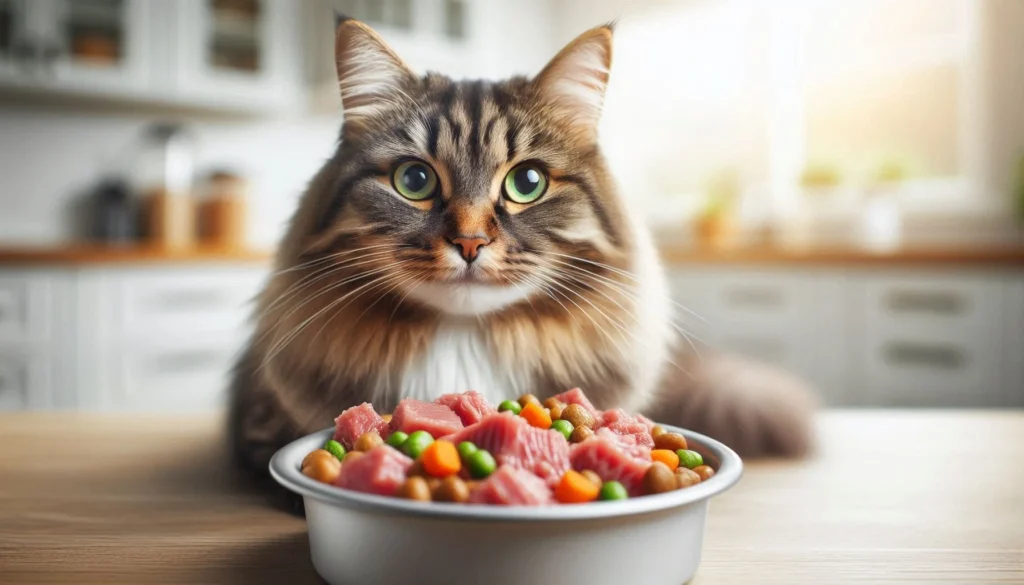
Are You Making These Dangerous Homemade Cat Food Mistakes?
Thinking of switching your cat to homemade food? While DIY cat food can be healthier than store-bought options, common homemade cat food mistakes —like imbalanced recipes or unsafe ingredients—can lead to severe nutritional deficiencies, organ failure, or even life-threatening conditions. Avoiding these frequent errors in preparing cat food at home is crucial for your feline’s well-being.
Here’s what you need to know to keep your furry friend healthy!
7 Biggest Homemade Cat Food Errors
1.Not Supplementing with Taurine
Taurine is an essential amino acid that cats cannot produce on their own. A taurine deficiency can cause blindness, heart disease, and immune system failure.
✅ Solution: Always add a taurine supplement to homemade cat food, especially if it’s cooked.
2. Calcium Imbalance (Too Much or Too Little)
Cats need calcium for strong bones and teeth. A lack of calcium can cause bone deformities, fractures, and hyperparathyroidism, while excess calcium can lead to kidney issues.
✅ Solution: If you don’t include raw bones in the diet, use bone meal powder or a calcium supplement to balance it.
3. Ignoring Essential Vitamins and Minerals
Cats need a variety of nutrients that aren’t naturally present in plain meat. Missing key vitamins can cause neurological disorders, vision problems, and immune deficiencies.
✅ Solution: Include these in your cat’s diet:
- Vitamin A (from liver or supplements)
- Niacin (B3) and Thiamine (B1) (found in poultry and fish, but degrade with heat)
- Omega-3 Fatty Acids (from fish oil or krill oil)
4. Cooking the Food Incorrectly
Cooking destroys many essential nutrients like taurine and B vitamins. Grinding or pureeing food improperly can also degrade certain nutrients.
✅ Solution: If cooking, add supplements afterward to preserve nutrients. If feeding raw, use fresh, high-quality meat.
5. Using Harmful Ingredients
Many human foods are toxic to cats, and some ingredients commonly added to DIY cat food can be harmful.
🚫 Avoid these ingredients:
- Onions & Garlic (cause anemia)
- Chocolate, Grapes, & Raisins (toxic to cats)
- Raw Egg Whites (contain avidin, which blocks biotin absorption)
- Dairy Products (many cats are lactose intolerant)
6. Failing to Maintain Proper Food Safety
Homemade cat food, especially raw diets, can contain harmful bacteria like Salmonella and E. coli if not handled properly.
✅ Solution:
- Buy meat from trusted sources.
- Store food at the correct temperature.
- Clean utensils and surfaces after each use.
7. Not Following a Proper Recipe
Guessing portions or following unverified recipes can lead to imbalanced meals that lack essential nutrients.
✅ Solution: Use AAFCO-approved recipes or trusted feline nutrition resources, such as Dr. Lisa Pierson’s guide to homemade cat food.
How to Make Balanced Cat Food at Home
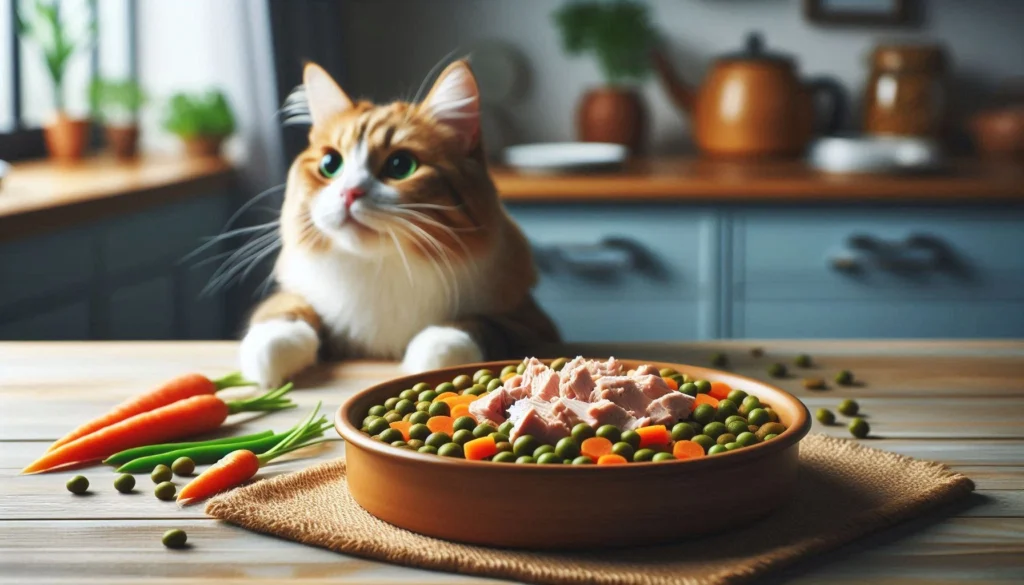
Here’s a basic guideline for a well-balanced DIY cat food recipe:
| Ingredient | Purpose |
| Chicken or Turkey | High-quality protein |
| Chicken Liver | Provides Vitamin A |
| Bone Meal Powder | Essential for calcium balance |
| Fish Oil | Omega-3 fatty acids |
| Taurine Supplement | Prevents heart and eye issues |
| B-complex Vitamins | Supports energy and metabolism |
📌 Tip: Consider premade supplement mixes like Alnutrin, Feline Instincts, or TC Feline for an easier approach to balanced nutrition.
FAQs About Homemade Cat Food
1. Is homemade cat food better than commercial food?
If done correctly, yes! It can be healthier and free from preservatives. However, it requires careful balancing of nutrients to prevent deficiencies.
2. Can I feed my cat raw food?
Yes, but handle it safely to avoid bacterial contamination. Ensure it contains all essential nutrients.
3. How can I tell if my cat’s diet is lacking nutrients?
Signs of nutritional deficiencies include lethargy, poor coat quality, weight loss, and digestive issues.
4. Do I need to add supplements to homemade cat food?
Absolutely! Essential supplements include taurine, calcium, vitamin A, and omega-3 fatty acids.
5. Can I use human multivitamins for my cat?
No. Human supplements often contain toxic levels of certain vitamins for cats, like vitamin D.
Final Thoughts: Keep Your Cat Safe & Healthy
Making homemade cat food can be rewarding, but it’s important to avoid common mistakes to ensure your cat gets a nutritionally complete diet. Always use trusted recipes, add essential supplements, and consult a vet if you’re unsure about your cat’s dietary needs.
🔥 Take Action Now: Start by using a trusted premade supplement mix or consulting a feline nutritionist to ensure your homemade cat food is safe and balanced!


